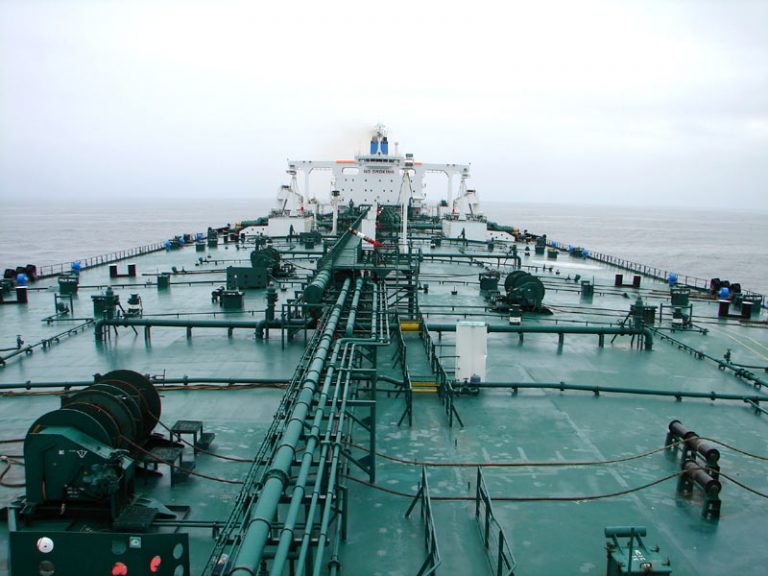
The representatives of the Union of Greek Shipowners maped out the positions of the world’s largest shipping company, pointing out that the sector does not need more regulations, but better ones.
In this context, it was emphasized that the environmental and political agenda of the European Union must take into account the irreplaceable, strategic role of Community shipping, while it is vital that safety is the guiding principle for all environmental regulations.
As, as the UGS representatives mentioned, there is no single solution that fits all shipping sectors, Greek shipping is in a very good position to respond and adapt to the ESG era as a leader in the implementation of innovative, technological developments.
“Superiority of Europe”
The speech of the president of the Union of Greek Shipowners, Melina Travlos, at the Opening Session, at the Delphi Economic Forum, was characteristic. She, institutionally representing the leading branch of the national economy, Greek shipping, pointed out that it is the superweapon of Europe. “It is a national, economic partner. Provider of billions of euros in maritime foreign exchange, employer of hundreds of thousands of direct and indirect jobs and a steady investor in other sectors of our national economy as well. It is a national capital, identified with national pride. The national beneficence and social solidarity towards the homeland, towards Greek women and Greek citizens, is consistent, silent, broad”.
According to Ms Travlos, “our navy is our history. The new order of things has a new challenge, a new philosophy. An order where “business” and “well-being” coexist. Where the center is human beings. The one where the “I” recedes and the “we” takes its place again. Sustainable development requires sustainable people. Let’s put “well-being” back at the center of development and new data. The protection of human value and coexistence is the challenge, but also the only solution. Our future, the future of humanity, is only humanity itself. We are”.

“Structural weaknesses in the revised EU ETS”
For his part, the vice-president of the UGS, Antonis Laimos, said, among other things, that “legislative regulations of horizontal application of the EU often do not take into account the unique characteristics of the shipping sector and the social and economic impact they have. There are structural weaknesses in the revised EU ETS, which includes shipping. It is important that we try to shape the new regulations so that they can achieve their objectives without overburdening the end consumer.”
Mr. Lemos stressed that Greek shipping is in a very good position to respond and adapt to the new era, remaining loyal to its long-standing commitment to environmental protection. H also noted the vital role of shipping in the global economy, ad its continued contribution during the covid pandemic.

“Commitment to the goal of decarbonisation”
Dimitrios Fafalios, secretary of the UGS, stressed the need for global regulation to avoid distortion of competition, and the need for a balance between efficiency and decarbonisation, as well as the need for safety. Alternative fuels and technologies, which are not yet available, should be safe, seaworthy and available globally in sufficient quantities, he noted.

“Shipping needs better, not more regulations”
Regarding the need to move towards “green shipping”, UGS treasurer Ioannis Xylas underlined that the commitment and coordination of all parties involved is vital for the decarbonisation of shipping. “We need better regulations, not more regulations,” he stressed. Shipping has a lot of specialized know-how about what is applicable and appropriate for the needs and the way each shipping sector operates, as there is no one solution that fits all sectors, noted.

“Additional Challenges”
Finally, Ioannis Lyras, a member of the Union’s Board of Directors, noted that the shipping industry, which is already the most energy-efficient way of transporting goods, is fully committed to the goal of decarbonisation, despite the fact that it is a sector that is absolutely dependent on fossil fuels. Its decarbonisation primarily requires the production in sufficient quantities of alternative sustainable fuels and technologies, which are not yet available, as well as the cooperation and commitment of a significant number of other stakeholders, such as producers, fuel suppliers, shipyards and engine manufacturers. Bulk/tramp shipping, which carries 86% of the world’s maritime trade in energy, raw materials, grains and other agricultural products, faces additional challenges due to its global activity and the way it operates, in which the operator that commercially operates the vessel ( charterer) holds a structural role. The strategic role of EU shipping, guaranteeing the security of supply of the EU’s energy sources and other essential goods from different regions of the world, needs to be better recognized by EU institutions and policy makers. This will be achieved if regulations are adopted with a Flag State approach, taking due account of the need for European shipping to remain sustainable and globally competitive,” he said
Latest News

Fitch Ratings Upgrades the Four Greek Systemic Banks
NBG’s upgrade reflects the bank’s ongoing improvements in its credit profile, Fitch notes in its report, including strong profitability, a reduction in non-performing exposures (NPEs), and lower credit losses

Trump to Announce Sweeping New Tariffs Wednesday, Global Retaliation Expected
With Trump's announcement just hours away, markets, businesses, and foreign governments are bracing for the fallout of one of the most aggressive shifts in U.S. trade policy in decades.

Inflation in Greece at 3.1% in March, Eurostat Reports
Average inflation in the eurozone settled at 2.2%, compared to 2.3% in February

Greece’s Unemployment Rate Drops to 8.6% in February
Despite the overall decline, unemployment remains higher among women and young people.

Jerry Kalogiratos Highlights Key Role of Energy Transition and Data Demand in LNG Outlook
Energy transition and the prospects of LNG were discussed at Capital Link’s 19th Annual International Maritime Forum, during a panel discussion with Jerry Kalogiratos (Capital Clean Energy Carriers Corp.)

Santorini Safe and Ready for a Dynamic Tourism Season
Authenticity, cultural heritage, and genuine experiences at the center of Santorini's new promotional campaign

Electricity Bills: Greece Announces Reduced Tariffs Schedule
Greece will now offer lower electricity rates between 11:00-15:00 and 02:00-04:00

Chevron Confirms Eyeing Natural Gas Exploration South of Crete
Chevron recently declared its intent to explore a third area, south of the Peloponnese.

Evangelos Marinakis: A time of change from which shipping can benefit
Speaking at the 19th Annual Capital Link International Shipping Forum Evangelos Marinakis stressed the challenges that shipping faces today

Retail Trade in Greece Up 2.5% in December 2024: ELSTAT
In January 2025, the General Turnover Index recorded a 2.5% increase compared to January 2024. Compared to December 2024, it recorded a significant decline of 18.4%

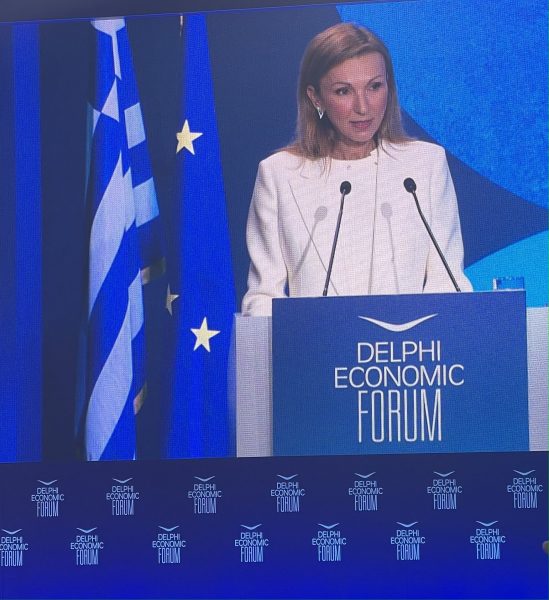
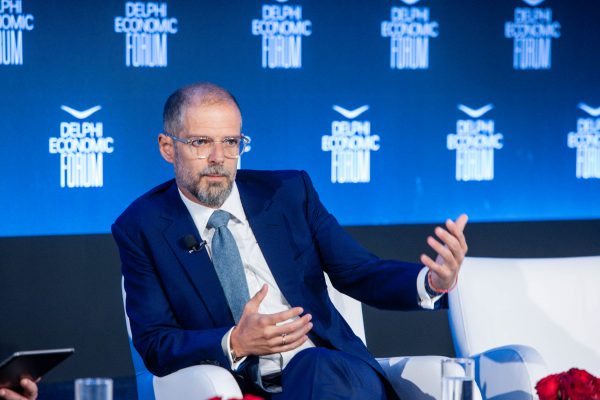


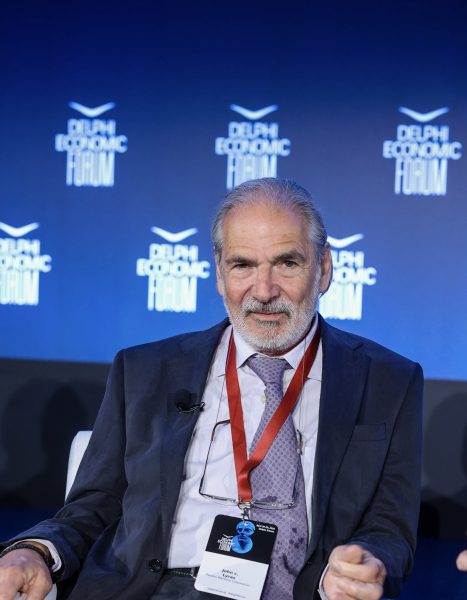










![Τουρκία: Μεγάλες βλέψεις για παραγωγή ηλεκτρικών οχημάτων [γράφημα]](https://www.ot.gr/wp-content/uploads/2025/03/ot_turkish_autos-90x90.png)











![ΕΛΣΤΑΤ: Αυξήθηκε η οικοδομική δραστηριότητα κατά 15,6% το Δεκέμβριο [πίνακες]](https://www.ot.gr/wp-content/uploads/2025/03/DSC9655-2-1024x569-1-90x90.jpg)





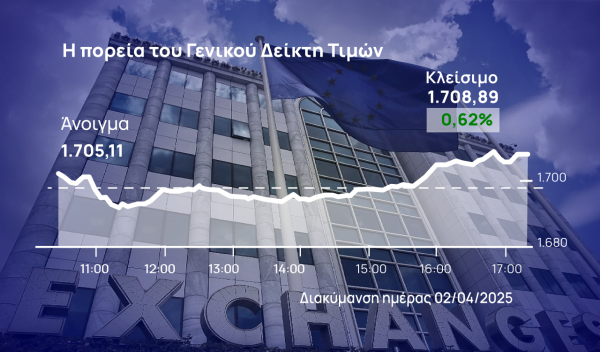


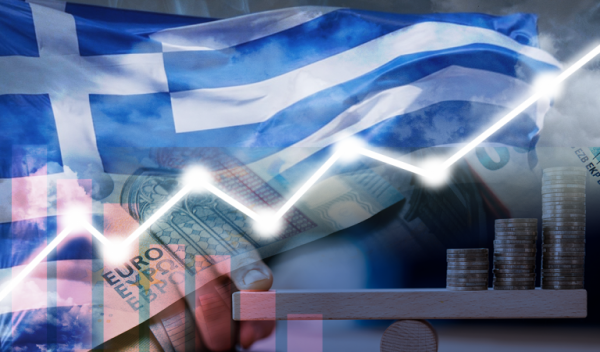
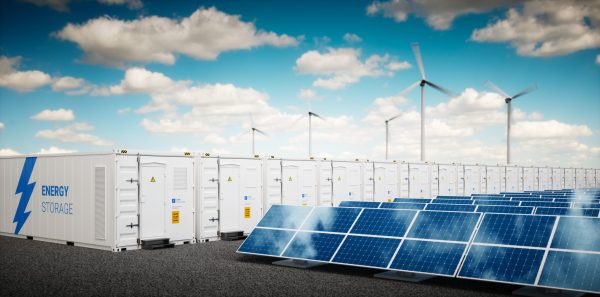







 Αριθμός Πιστοποίησης
Αριθμός Πιστοποίησης